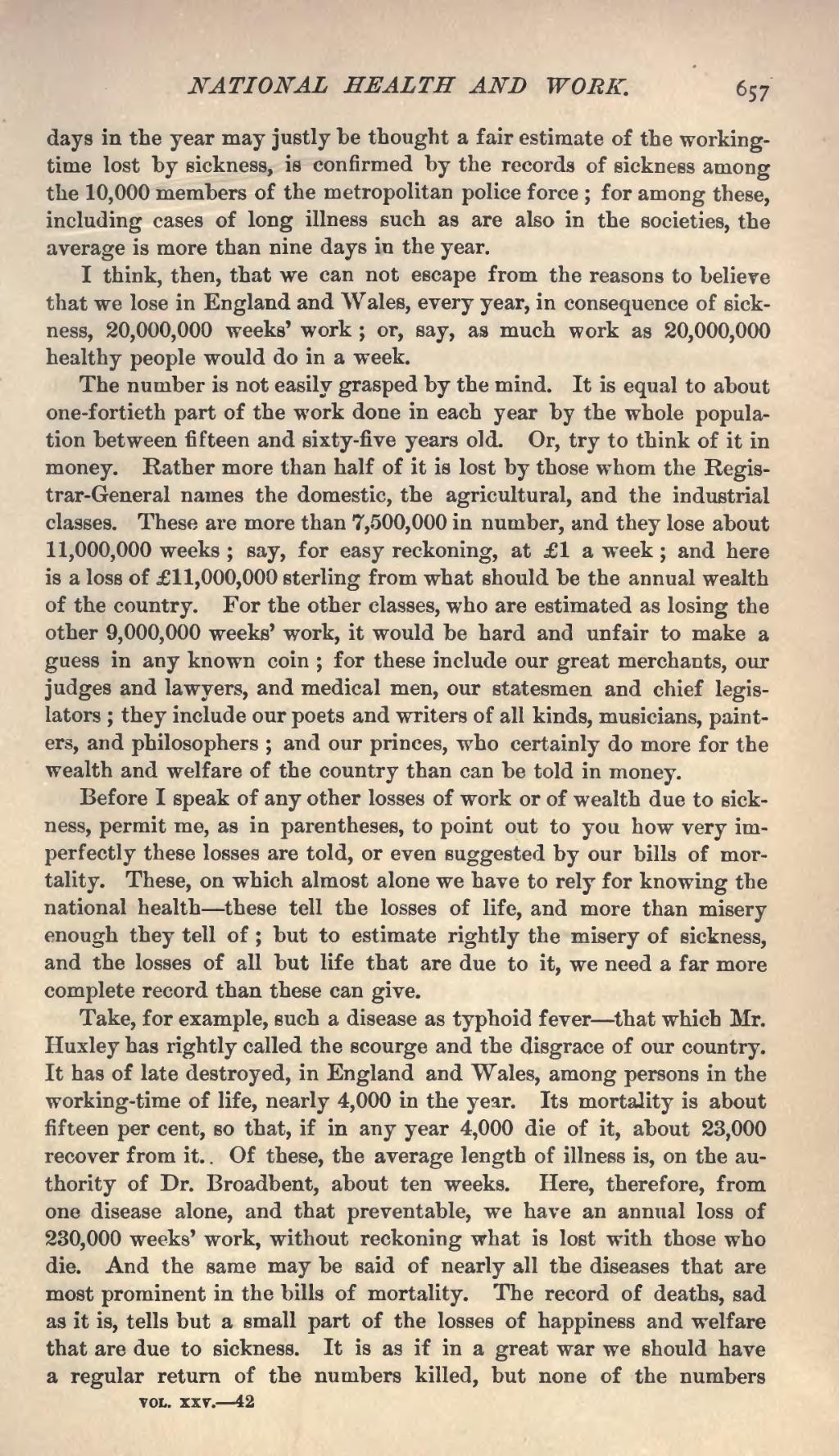days in the year may justly be thought a fair estimate of the working-time lost by sickness, is confirmed by the records of sickness among the 10,000 members of the metropolitan police force; for among these, including cases of long illness such as are also in the societies, the average is more than nine days in the year.
I think, then, that we can not escape from the reasons to believe that we lose in England and Wales, every year, in consequence of sickness, 20,000,000 weeks' work; or, say, as much work as 20,000,000 healthy people would do in a week.
The number is not easily grasped by the mind. It is equal to about one-fortieth part of the work done in each year by the whole population between fifteen and sixty-five years old. Or, try to think of it in money. Rather more than half of it is lost by those whom the Registrar-General names the domestic, the agricultural, and the industrial classes. These are more than 7,500,000 in number, and they lose about 11,000,000 weeks; say, for easy reckoning, at £1 a week; and here is a loss of £11,000,000 sterling from what should be the annual wealth of the country. For the other classes, who are estimated as losing the other 9,000,000 weeks' work, it would be hard and unfair to make a guess in any known coin; for these include our great merchants, our judges and lawyers, and medical men, our statesmen and chief legislators; they include our poets and writers of all kinds, musicians, painters, and philosophers; and our princes, who certainly do more for the wealth and welfare of the country than can be told in money.
Before I speak of any other losses of work or of wealth due to sickness, permit me, as in parentheses, to point out to you how very imperfectly these losses are told, or even suggested by our bills of mortality. These, on which almost alone we have to rely for knowing the national health—these tell the losses of life, and more than misery enough they tell of; but to estimate rightly the misery of sickness, and the losses of all but life that are due to it, we need a far more complete record than these can give.
Take, for example, such a disease as typhoid fever—that which Mr. Huxley has rightly called the scourge and the disgrace of our country. It has of late destroyed, in England and Wales, among persons in the working-time of life, nearly 4,000 in the year. Its mortality is about fifteen per cent, so that, if in any year 4,000 die of it, about 23,000 recover from it. Of these, the average length of illness is, on the authority of Dr. Broadbent, about ten weeks. Here, therefore, from one disease alone, and that preventable, we have an annual loss of 230,000 weeks' work, without reckoning what is lost with those who die. And the same may be said of nearly all the diseases that are most prominent in the bills of mortality. The record of deaths, sad as it is, tells but a small part of the losses of happiness and welfare that are due to sickness. It is as if in a great war we should have a regular return of the numbers killed, but none of the numbers

